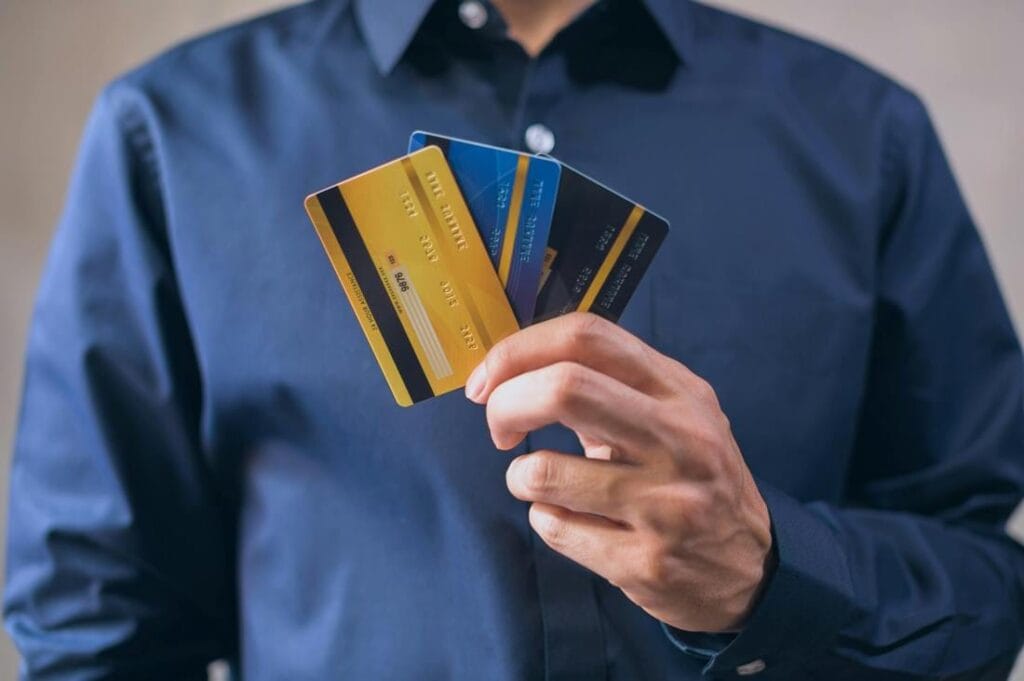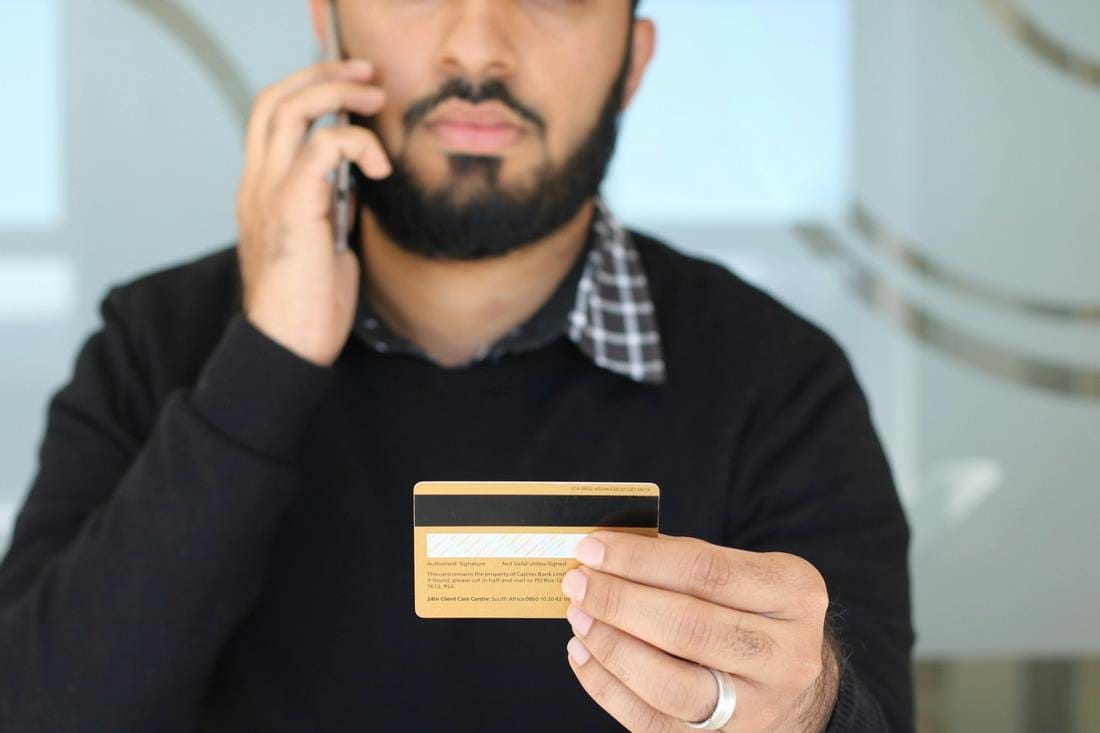To sign or not to sign—that is the question perplexing many credit card holders. While it may seem like a minor detail, deciding whether to affix your John Hancock to the back of your plastic can have significant implications for security, fraud prevention, and even your shopping experience. This article dives into the depths of the debate, providing you with all the information you need to make an informed decision.
The Purpose of Signing Your Credit Card
Why Credit Card Companies Want You to Sign
Credit card companies are adamant about signatures for one primary reason: security. By signing the card, you create a tangible link between you and the piece of plastic in your wallet. This signature acts as an initial line of defense, enabling retailers to verify that the person using the card is indeed its rightful owner.
The History of Credit Card Signatures
The practice of signing credit cards dates back to the early days of plastic money. When credit cards first became widespread in the 1950s, signatures were the main method for validating transactions. The signature panel was introduced to provide an added layer of authentication, complementing the signature on the sales receipt.

Pros of Signing Your Credit Card
Enhanced Security Measures
A signed card can deter thieves from using it, as they may be required to replicate your signature to make a purchase. This simple act can introduce an extra step that discourages unauthorized use, providing you with greater peace of mind.
Easier to Prove Ownership
Should you need to dispute a fraudulent transaction, a signed card can serve as evidence of your consistent use. The signature can help establish a pattern, aiding in the resolution of claims and potentially expediting the process.
Retailer Verification Process
Retailers often check the signature on the card against the one on the receipt. This practice, though not foolproof, can catch some instances of fraud and prevent unauthorized transactions. It’s a quick, albeit sometimes neglected, step that can safeguard your finances.
Cons of Signing Your Credit Card
Potential for Signature Theft
A visible signature on your card can be copied by unscrupulous individuals, potentially leading to forgery and unauthorized use. In the wrong hands, this information can become a tool for fraudsters to mimic your identity.
False Sense of Security
Relying solely on a signature for security might lull you into a false sense of protection. Modern fraudsters have many ways to bypass this simple safeguard, so it’s crucial not to depend on it entirely.
Retailers Ignoring Signatures
In reality, many retailers don’t thoroughly check signatures. The fast-paced nature of transactions means that cashiers may overlook this step, rendering your signature ineffective in preventing fraud.
Alternatives to Signing Your Credit Card
Writing “See ID” Instead
Some cardholders opt to write “See ID” in the signature panel. This instructs cashiers to request identification, adding an extra verification step. While this can enhance security, it also relies heavily on the diligence of the retailer.
Using Digital Wallets for Added Security
Digital wallets, such as Apple Pay or Google Wallet, offer a higher level of security through encryption and tokenization. These technologies ensure that your card details are never directly exposed during a transaction, significantly reducing the risk of fraud.
Relying on PIN Codes Over Signatures
PIN codes offer another layer of security. Unlike signatures, PINs are less susceptible to theft and forgery. They provide a more robust method of verifying the cardholder’s identity during transactions.
Legal Implications of Signing or Not Signing
Credit Card Issuer Policies
Credit card issuers have specific policies regarding signatures. While some may insist on a signed card for it to be valid, others might be more lenient. Understanding your issuer’s policy is crucial in making an informed decision.
Impact on Fraud Claims
Signing your card can affect how fraud claims are processed. A signed card might expedite the resolution process, as it serves as proof of your intention to use the card. Conversely, an unsigned card could complicate matters if a dispute arises.
Understanding Your Rights
Knowing your rights as a cardholder is essential. Whether you sign your card or not, being aware of your protections under the law can empower you to take the right steps in the event of fraud.
Expert Opinions on Signing Credit Cards
Insights from Financial Advisors
Financial advisors often recommend signing your card to add a layer of security. They argue that, despite its limitations, a signature can still be a useful tool in preventing unauthorized use.
Views from Security Experts
Security experts, on the other hand, may point out the shortcomings of relying on signatures. They often advocate for more robust security measures, such as chip technology and digital payment methods.
Personal Finance Blogger Perspectives
Personal finance bloggers provide a variety of perspectives, sharing personal anecdotes and practical advice. Their insights can help you weigh the pros and cons based on real-life experiences.
How Retailers Handle Unsigned Credit Cards
Common Practices in Stores
In practice, how retailers handle unsigned cards can vary widely. Some may refuse the transaction, while others might proceed without hesitation. Understanding these practices can help you anticipate potential issues.
Variations by Country and Region
Different countries and regions have varying standards for credit card transactions. While some places might strictly enforce signature requirements, others may prioritize PIN codes or digital methods.
Personal Experiences from Shoppers
Hearing from other shoppers about their experiences with unsigned cards can provide valuable insights. These stories can highlight common challenges and successful strategies.
Tips for Protecting Your Credit Card Information
Best Practices for Credit Card Security
Adopting best practices for credit card security can go a long way in protecting your finances. Regularly monitoring your accounts, using secure passwords, and being cautious with your card details are crucial steps.
How to Monitor Your Accounts for Fraud
Regularly checking your statements and setting up alerts can help you catch fraudulent activity early. Prompt detection is key to minimizing potential losses.
Steps to Take if Your Card is Compromised
If your card is compromised, acting quickly is essential. Contact your issuer immediately, monitor your accounts, and consider placing a fraud alert on your credit reports.
Real-Life Stories: To Sign or Not to Sign
Testimonials from Cardholders
Cardholders share their experiences with signing or not signing their cards. These testimonials can provide real-world insights into the effectiveness of different approaches.
Success Stories and Cautionary Tales
Success stories highlight how signing a card prevented fraud, while cautionary tales underscore the potential risks. Learning from these experiences can guide your decision.
Lessons Learned from Real Experiences
Real-life lessons from cardholders offer valuable takeaways. These stories can help you make an informed decision based on practical, firsthand knowledge.
Making Your Decision: Factors to Consider
Personal Security Concerns
Your personal security concerns should be at the forefront of your decision. Assess your risk tolerance and consider how a signature fits into your overall security strategy.
Shopping Habits and Preferences
Your shopping habits and preferences play a significant role. If you frequently shop at places that require signatures, it might make sense to sign your card. Conversely, if you rely more on digital payments, other measures might be more effective.
The Evolution of Credit Card Technology
Credit card technology is continually evolving. Staying informed about the latest advancements can help you make a decision that aligns with current best practices.
BOTTOM LINE
In the end, whether you choose to sign your credit card or explore alternative security measures, the decision boils down to balancing convenience with protection. While signing your card can offer some level of security and ease of transaction, it’s essential to remain vigilant and consider supplementary safeguards like digital wallets or PIN codes. Ultimately, understanding your risks and preferences will guide you towards making the right choice for your financial security.
Frequently Asked Questions (FAQs)
1. Should I sign the back of my credit card? Signing your credit card adds a layer of security by verifying your ownership, but it’s not foolproof against fraud.
2. What should I do if a retailer doesn’t check my signature? If a retailer doesn’t verify your signature, consider using alternative security measures like digital wallets or PIN codes.
3. Is it safer to write “See ID” instead of signing my credit card? Writing “See ID” can prompt retailers to check your identification, but it relies on their compliance and diligence.
4. How can I protect my credit card information from fraud? Protect your credit card by monitoring your accounts regularly, using strong passwords, and being cautious with your card details.
5. What legal rights do I have regarding credit card fraud? As a cardholder, you have rights protected by law. Familiarize yourself with these rights to take appropriate action in case of fraud.





![[ruby_related heading="More Read" total=5 layout=1 offset=5]](https://www.guiderichess.com/wp-content/uploads/2024/07/See-Their-True-Worth-Copy-150x150.jpg)



